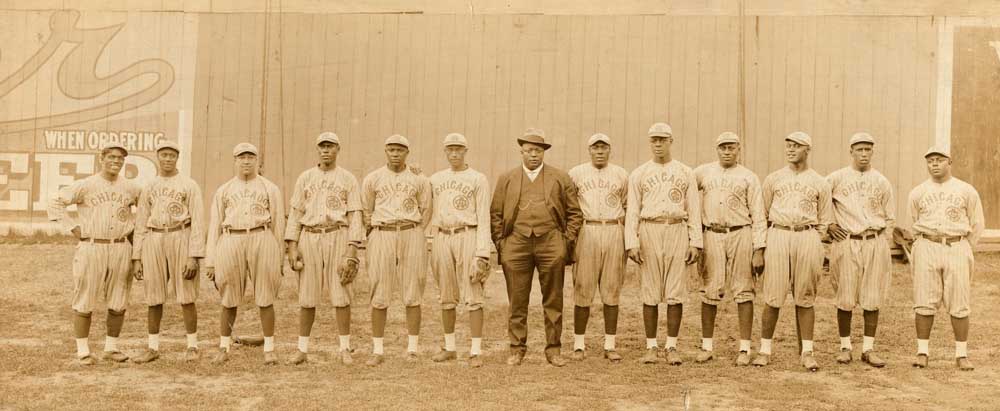The rich history of baseball’s Negro Leagues arrives in theaters
Published 12:26 pm Thursday, July 6, 2023

- Rube Foster while managing the 1916 Chicago American Giants. MUST CREDIT: Courtesy of Magnolia Pictures
On Feb. 13, 1920, in Kansas City’s Paseo YMCA, Andrew “Rube” Foster and seven other owners of Black baseball teams across the Midwest established the Negro National League. “We are the ship, all else the sea” — a quote borrowed from abolitionist Frederick Douglass — was adopted as the league’s slogan, and Foster, the owner and manager of the Chicago American Giants, was named its first president.
Foster’s vision for the enterprise, which he had championed since his days as an outstanding pitcher with the Giants from 1911 to 1917, was to create a league so dynamic and entertaining that Major League Baseball’s White owners would be foolish not to expand their more established circuit by joining forces with it. Foster’s premature death at 51 in 1930 denied him the chance to make his dream a reality, but his contributions to the sport and baseball’s eventual full-scale integration are undeniable.
The rise, fall and enduring legacy of the Negro Leagues, none of which would have been possible without the entrepreneurial Foster, is the focus of a new documentary titled “The League” by acclaimed director Sam Pollard. The movie, which opened nationwide this past weekend and is executive-produced by Ahmir “Questlove” Thompson, shines a light on the individuals who helped grow the Negro Leagues into a thriving economic force that stabilized Black communities amid the Great Migration. It will be available to stream digitally on Friday.
Using newly discovered archival footage, insight from historians and recorded interviews with Negro League players and executives, Pollard traces the history of Black baseball from 1884, when Moses Fleetwood Walker played catcher for the predominantly White Toledo Blue Stockings of the major league American Association, through Jackie Robinson reintegrating the sport in 1947. The movie is based on former Negro League umpire Bob Motley’s memoirs, which were co-authored by his son, Byron, who contacted Pollard about directing the documentary several years ago and recorded many of the interviews featured.
In 1920, the same year the Negro National League was created, Kenesaw Mountain Landis, a federal judge in Chicago, was appointed MLB’s first commissioner. By then, organized baseball had been racially segregated for nearly three decades, due in part to the efforts of legendary Chicago White Stockings player-manager Cap Anson. In 1887, Anson refused to play an exhibition game against the Newark Little Giants unless the International League team’s Black players, including Walker and pitcher George Stovey, sat out. International League directors held a secret meeting in the wake of Anson’s protest and decided to prohibit the signing of Black players going forward. Other leagues followed suit.
The Negro National League, which featured an up-tempo style of play that would come to define the Negro Leagues, was a success. Foster’s death and the Great Depression brought about the original league’s demise in 1931, but a second Negro National League was founded in 1933 by Pittsburgh businessman Gus Greenlee.
Pollard delves into the heated crosstown rivalry that developed between Greenlee’s Pittsburgh Crawfords and Cumberland Posey, owner and manager of the Homestead Grays. With the founding of the Negro American League in 1937 and stars such as Josh Gibson, Cool Papa Bell, Oscar Charleston and Buck O’Neil dazzling large crowds in multiple leagues across the country, the late 1930s and 1940s marked the heyday of Black baseball.
Meanwhile, Landis did little to change the status quo at the major league level, which remained segregated despite no official policy against signing Black players.
Landis died in office in November 1944. The following year, Brooklyn Dodgers president Branch Rickey signed Robinson of the Negro League Kansas City Monarchs to a minor league contract.





